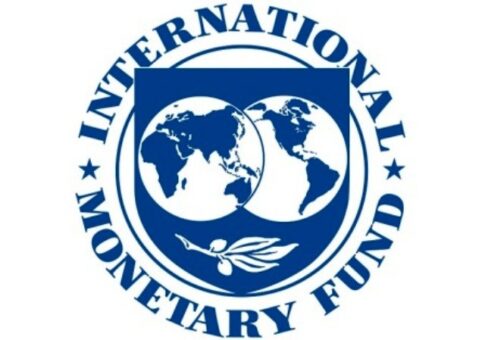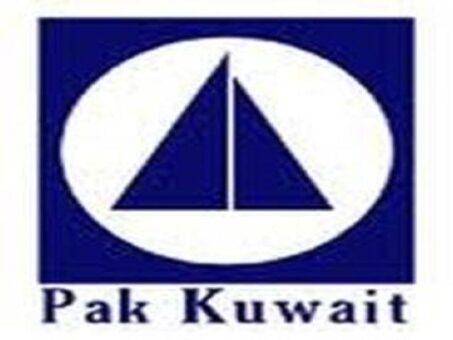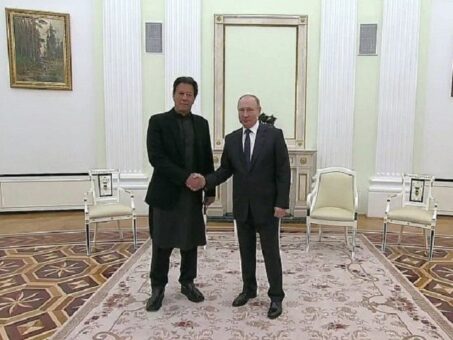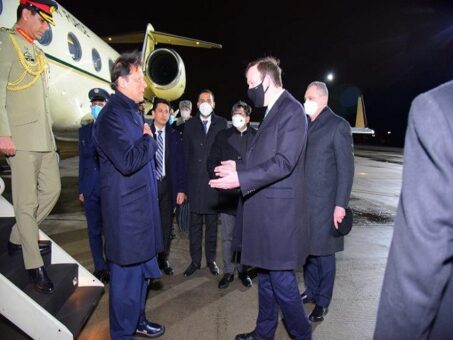KARACHI: Pakistan’s economy has maintained growth momentum in first quarter of fiscal year 2021/2022, which was begun during the preceding fiscal year, the State Bank of Pakistan (SBP) said in the first quarterly (July – September) 2021-2022 report on State of Pakistan Economy.
“Both the supply and demand sides contributed to this momentum. Broad-based expansion in large-scale manufacturing (LSM) and improved kharif crop outcomes reflected favorable supply-side dynamics; whereas strong sales of fast-moving consumer goods and cars, import volumes, energy consumption and consumer financing, indicated buoyancy on the demand side,” according to the report.
Higher economic activity contributed to improved tax revenues and a lower fiscal deficit. However, the substantial increase in global commodity prices contributed to in a build-up in inflationary pressures and a widening current account deficit, it added.
READ MORE: Pakistan’s forex reserves dip to $22.283 billion
The SBP said the analysis and economic outlook of the report are based on data for the July-September 2021 period, and were finalized in November 2021, using data available as of then. As such, the report did not incorporate the rebasing of the large-scale manufacturing and GDP in January 2022.
The report notes that the continuation of the accommodative policy stance during the Jul-Sep 2021 period; SBP’s longstanding refinance schemes for exporting firms; and a growth-oriented Budget FY22 – contributed to LSM growth rising to 5.1 percent from 4.5 percent last year. Industries that benefited directly from the fiscal support – such as automobiles and construction-allied sectors – also posted higher growth. In agriculture, preliminary estimates for rice, sugarcane and cotton pointed to encouraging output levels.
On the monetary side, the availability of affordable credit played a major role in propping up industrial activity, especially in the wake of rising input costs. Commercial banks’ lending to private sector businesses rose by Rs.177.4 billion during Q1-FY22, compared to a net retirement of Rs.101.4 billion witnessed last year. Textiles, edible oil companies and oil refineries borrowed heavily for working capital, partly due to higher imported input costs.
READ MORE: SBP allows microfinance banks to offer IPS accounts
For export-oriented industries like textiles, the Export Finance Scheme and the Long-Term Financing Facility, along with continued disbursements under the Temporary Economic Refinance Facility, allowed them to borrow at concessional rates for working capital and fixed investment purposes respectively.
The government and the SBP’s efforts to encourage housing finance – including via subsidized financing under the Mera Pakistan Mera Ghar (MPMG) scheme – began to yield desirable results as well. Banks approved Rs.72 billion in financing under MPMG by end-September 2021, out of which Rs.16.97 billion were disbursed. As a result, the outstanding stock of banks’ housing and construction finance had increased to Rs.305 billion by quarter-end, from Rs.166 billion a year earlier.
The report points out that this increased economic activity – coupled with rising imports, withdrawal of corporate income tax exemptions, increase in domestic prices, tax administration efforts and some budgetary measures – contributed to the sizable 38.3 percent growth in FBR taxes during Q1-FY22. The higher revenues allowed for a substantial rise in non-interest expenditures, stemming from an increase in development spending, purchase of Covid-19 vaccines, and power sector subsidies. As a result, the primary balance continued to remain in surplus. The fiscal position also materially benefited from the reduction in interest payments on both domestic and external debt. As a result, the fiscal deficit reduced to 0.8 percent of GDP from 1.0 percent last year.
At the same time, the report also notes that these macroeconomic gains were tested by the significant upswing in global commodity prices and shipping costs during the period. Despite some deceleration from last year, CPI inflation remained at an elevated level of 8.6 percent during Q1-FY22. The food group was the top contributor to headline inflation, amidst rising prices of edible oil, poultry, wheat and sugar. Meanwhile, the sharp rise in global oil prices contributed to higher energy inflation, despite the government’s decision to partially absorb the price hike by lowering taxes during Jul-Sep 2021.
The report points out that the surge in global commodity prices also played a dominant role in significantly pushing up import payments. The country’s import demand was also elevated amidst strong industrial activity, the need to import Covid-19 vaccines, and imports of capital equipment. The rise in export receipts and workers’ remittances, though quite encouraging, could not offset the increase in import payments. As a result, the current account deficit widened to US$ 3.5 billion in Q1-FY22, and these payment pressures led to the market-determined exchange rate depreciating by 7.7 percent against the US Dollar during the quarter.
In response to the pressures, the report notes that policymakers had to strike a careful balance. The primary concern was to avoid disrupting the ongoing economic momentum, especially given the heightened uncertainty created by the spread of the Delta variant-driven Covid-19 wave during the Jul-Sep 2021 period. These concerns had to be balanced against the external account pressures and expectations of higher inflation going forward. In response, the SBP’s Monetary Policy Committee modified its monetary policy stance by raising the policy rate by 25 basis points in its September 2021 meeting, after keeping rates unchanged during the July 2021 meeting. The SBP also undertook multiple regulatory measures to restrain import demand.
While the current account gap widened, the report highlights that the country’s external buffers remained intact, given the availability of higher external financing. The major financial flows came from the additional SDR allocation and tap issuance of Eurobonds. Furthermore, the Roshan Digital Accounts (RDAs) continued to attract interest from overseas Pakistanis, with inflows during Jul-Sep 2021 amounting to US$ 849 million, and cumulative inflows from inception reaching US$ 2.4 billion by end-September 2021. As a result, the SBP’s FX reserves increased by US$ 2.0 billion to US$ 19.3 billion by end-September 2021.
The report notes that the developments in the first quarter of FY22 highlight Pakistan’s susceptibility to global commodity price shocks, and the need for consistent policies at the sectoral level. Given the serious implications of the surging global palm and soybean oil prices on the external account and inflation, the Special Section in the report analyses the domestic oilseed sector in Pakistan. The section highlights that while reference to domestic oilseed development can be found as far back as in the country’s first Five-Year Plan (1955-60), the absence of a consistent policy and a dedicated and functional implementation agency over the years has steadily increased the country’s reliance on imports. The section concludes by providing policy recommendations to encourage domestic oilseed production.









